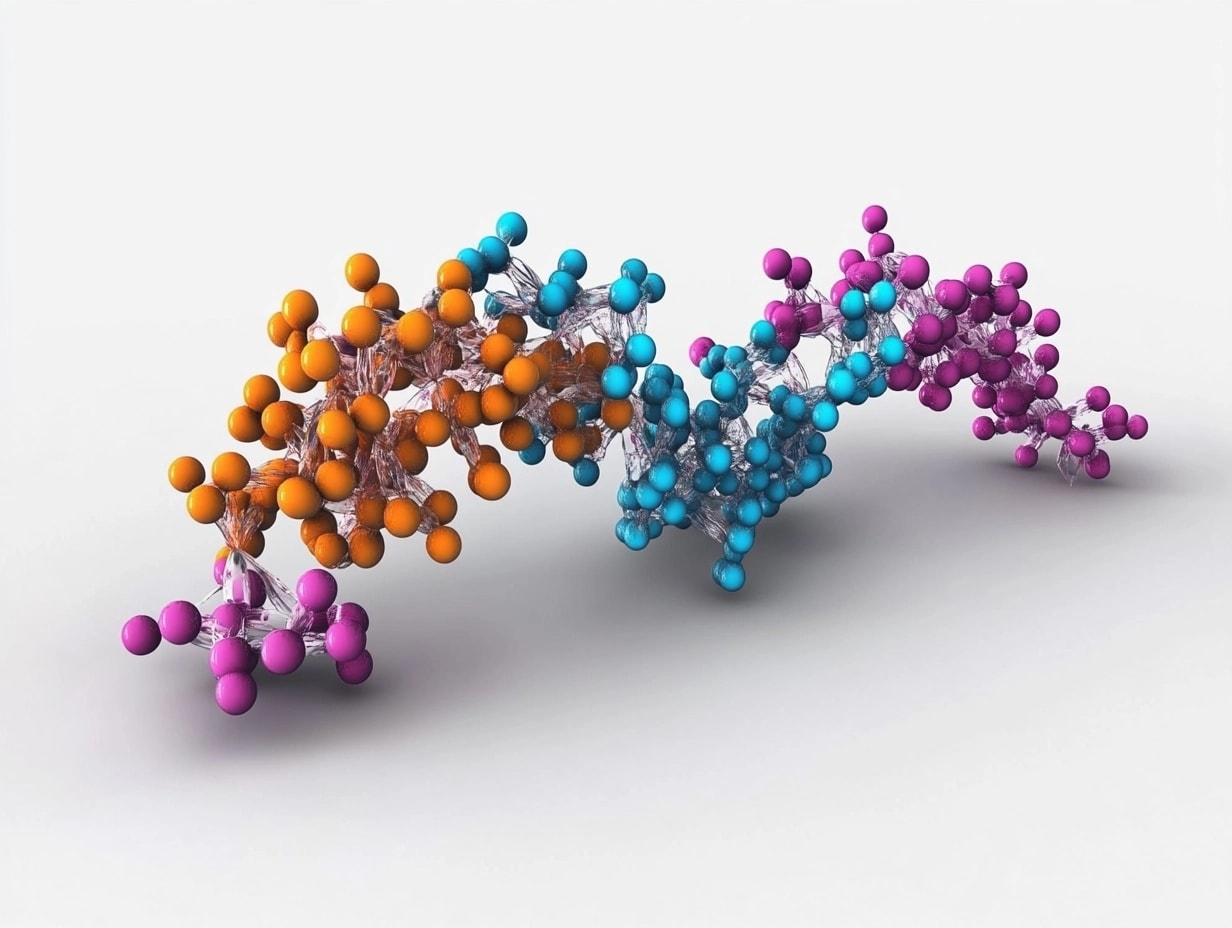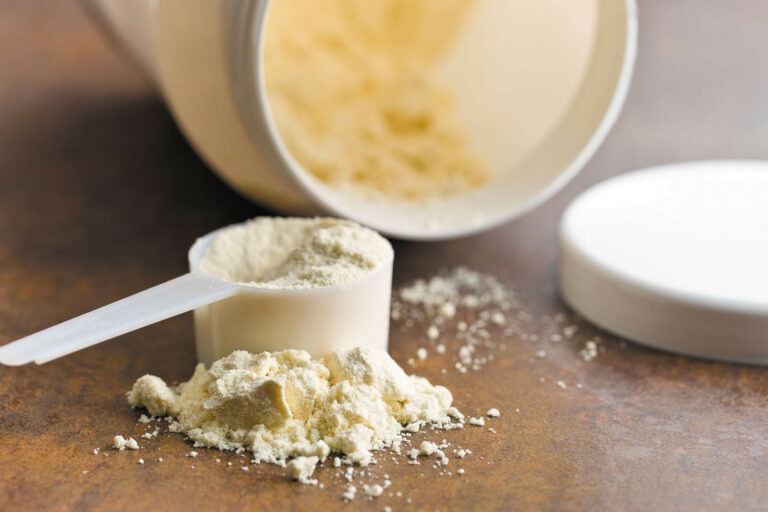Do Amino Acids Count Towards Protein Intake? A Clear Guide for Fitness Enthusiasts
Do amino acids count towards protein intake? Yes, they do….
Do amino acids count towards protein intake? Yes, they do. Amino acids are the building blocks of dietary protein and contribute to your overall protein intake. This article will explain how they do this, the difference between essential and non-essential amino acids, and their importance for muscle growth and recovery.
Introduction to Protein Intake
Protein intake is a cornerstone of a healthy diet, providing the essential building blocks for muscle growth and repair. The human body requires a daily intake of protein to maintain and build muscle mass, with the recommended dietary allowance (RDA) being 0.8 grams of protein per kilogram of body weight per day. However, this amount can vary based on factors such as age, sex, weight, and activity level. Athletes and bodybuilders, for instance, often need more protein to support muscle growth and recovery.
Protein can be sourced from a variety of foods, including animal proteins like meat, poultry, and fish, as well as plant proteins such as beans, lentils, and tofu. Consuming a balanced diet that includes a variety of protein sources ensures you get all nine essential amino acids, which are crucial for protein synthesis and muscle growth. Essential amino acids, such as leucine, isoleucine, and valine, must be obtained through the diet as the body cannot produce them.
Inadequate protein intake can lead to muscle loss and weakness, while excess protein intake can strain the kidneys and liver. Therefore, it’s important to balance your protein intake to support muscle building and overall health.
Key Takeaways
- Amino acids, especially essential ones, are crucial for muscle protein synthesis and must be obtained through diet for optimal recovery and growth.
- Complete proteins, containing all nine essential amino acids, are vital for muscle repair, with animal proteins being high-quality sources compared to most plant proteins.
- Regular physical activity increases daily protein needs to 1.1-1.5 grams per kilogram of body weight, highlighting the importance of balanced protein intake and whole food sources.
Understanding Amino Acids and Protein

Amino acids are the building blocks of proteins, which play a crucial role in the human body. They serve as the fundamental components necessary for synthesizing proteins, which are essential for building tissues and repairing muscles after workouts. When you think about protein, it’s not just about the grams of protein you consume but the amino acids found that make up those proteins.
Understanding total daily protein intake is crucial for muscle growth and recovery. It ensures that your body gets the necessary amount of protein based on your body weight and activity levels, contributing to overall health and muscle building.
Protein’s primary function is to build and repair tissues, making it vital for anyone engaged in regular physical activity. Without adequate protein intake, your body wouldn’t have the necessary resources to repair muscles, leading to poor recovery and potentially stunted muscle growth.
Understanding this foundational concept sets the stage for diving deeper into the specifics of amino acids and their role in muscle protein synthesis.
Essential Amino Acids vs. Non-Essential Amino Acids
Not all amino acids are created equal. There are nine essential amino acids that our bodies cannot produce, so we must obtain them through our diet. These essential amino acids are crucial for muscle protein synthesis and play a significant role in achieving sufficient daily protein intake. Without these remaining nine amino acids, your body cannot effectively repair and build muscle tissue.
On the other hand, non-essential amino acids can be produced by the body and do not need to be obtained from food. While they are still important for overall health, they don’t hold the same critical status as essential amino acids, which are considered essential for anyone looking to optimize their diet for muscle growth and repair.
Essential amino acids must be acquired through dietary sources because the body cannot synthesize them. Therefore, focusing on foods high in essential amino acids or combining foods to create a complete amino acid profile is key to meeting your fitness goals. Understanding these differences helps you make smarter dietary choices, ensuring you get the most out of your protein intake. Additionally, while BCAAs, particularly leucine, are crucial for stimulating muscle protein synthesis, their effectiveness is limited if there is an inadequate intake of other essential amino acids.
Types of Proteins
Proteins can be categorized into two main types: complete proteins and incomplete proteins. Complete proteins, found in animal products, contain all nine essential amino acids necessary for protein synthesis. Examples of complete proteins include chicken breast, fish, and eggs. In contrast, incomplete proteins, found in plant-based foods, lack one or more essential amino acids. To ensure you get all the necessary amino acids, you can combine different plant-based protein sources, such as beans and rice or lentils and nuts.
Branched-chain amino acids (BCAAs), including leucine, isoleucine, and valine, are a type of essential amino acid that plays a critical role in muscle growth and recovery. Protein powders, such as whey protein and casein protein, offer a convenient way to increase protein intake and support muscle growth. When choosing protein sources, prioritize high-quality options that are low in saturated fat, added sugars, and sodium.
Do Amino Acids Contribute to Daily Protein Intake?
Amino acids are indispensable for muscle repair and growth, making them vital for athletes and fitness enthusiasts. The human body relies on essential amino acids for crucial functions, including muscle repair and growth. But do these amino acids count towards your daily protein intake? The answer is yes, they do. Individuals who regularly exercise typically require 1.1–1.5 grams of protein per kilogram of body weight. This amount helps support their physical activities and muscle recovery.
For instance, a 165-pound person should consume about 60 grams of protein daily to meet their protein needs. This requirement underscores the importance of amino acids in your diet. Ensuring you get enough essential amino acids can significantly impact your muscle recovery and overall performance.
While BCAA supplementation is often considered for muscle protein synthesis, its benefits may be limited if adequate protein is already consumed. The effectiveness of BCAA supplementation can be influenced by the availability of other essential amino acids, questioning its utility when overall protein intake is sufficient.

Free Form Amino Acids and Protein Intake
Free-form amino acids are individual amino acids not bound in proteins, allowing them to be absorbed directly by the body. Their contribution to overall protein intake can vary depending on their absorption and utilization. These amino acids can be beneficial for quick muscle recovery and repair.
However, it’s essential to note that while free-form amino acids can supplement your diet, they should not replace whole protein sources. Including a variety of protein sources ensures you get a complete amino acid profile, which is crucial for optimal muscle protein synthesis and overall health.
Amino Acid Supplements and Protein Needs
While amino acid supplements can offer benefits in specific training contexts, they are typically not necessary for the average individual. Protein intake exceeding 1.6 grams per kilogram of body mass shows no further benefit in muscle protein synthesis, indicating that high intake alone isn’t necessary. Therefore, for those not overly concerned with optimization, EAA supplements may not justify their use.
BCAA products, available in various forms such as powders and ready-to-drink options, play a significant role in enhancing workout performance by providing essential branched-chain amino acids that aid in muscle growth and recovery.
If you want to experiment, pairing fast-digesting carbohydrates like fruit or fruit juice with EAA supplements for morning workouts can maximize their effect. However, it’s crucial to remember that BCAAs and proteins serve different purposes; BCAAs do not prevent protein deficiency and should not be considered food, while protein is essential for fulfilling dietary requirements.
Complete Proteins vs. Incomplete Proteins
A complete protein contains all nine essential amino acids, making it highly valuable for muscle repair and growth. In contrast, an incomplete protein lacks one or more of the nine essential amino acids, which can limit its effectiveness in supporting muscle protein synthesis. This distinction is crucial for anyone looking to optimize their protein intake for fitness goals.

For a food source to be considered a complete protein, it must contain all nine essential amino acids, which are vital for health and recovery, especially for those engaged in physical activity.
Plant-based proteins are often classified as incomplete protein sources due to their amino acid profile. However, certain plant sources like quinoa and soy are exceptions and are considered complete proteins. Knowing the difference between complete and incomplete proteins aids in making smarter dietary choices, ensuring you get all the essential amino acids your body needs.
Animal Proteins as Complete Proteins
Animal proteins are recognized for their higher quality due to the presence of all nine essential amino acids. Lean meats, fish, eggs, and low-fat dairy are considered excellent sources of protein. These animal proteins provide all the essential amino acids necessary for muscle repair and growth.
Including a variety of animal protein sources in your diet can help ensure you eat protein to meet your daily protein needs and get enough protein. These high-quality dietary proteins are particularly beneficial for those engaged in regular physical activity, as they provide the necessary nutrients for optimal muscle recovery and growth.
Plant Proteins and Combining Foods
Combining different plant-based sources can enhance protein quality by providing a complete amino acid profile. Notable exceptions among plant foods that contain all essential amino acids include quinoa and soy. Incomplete proteins can become complete by combining them with complementary foods, and these foods do not need to be eaten in the same meal.
It is important not to rely on protein alone but to balance it with other food groups in an entire meal. This ensures overall nutrition and supports various bodily functions.
Individuals following a plant-only diet should be more conscious of their protein intake to ensure they receive adequate essential amino acids. By combining various plant-based sources, such as beans and rice or hummus and whole-grain pita, you can create a complete protein profile, supporting muscle growth and overall health.
Using Whey Protein for Fitness
Whey protein is a popular supplement among athletes and bodybuilders due to its high quality and effectiveness in supporting muscle growth and recovery. Containing all nine essential amino acids, including BCAAs, whey protein is quickly absorbed by the body, making it an ideal post-workout supplement. Research has shown that whey protein can enhance muscle protein synthesis, reduce muscle soreness, and improve overall athletic performance.
Whey protein is available in various forms, such as powder, bars, and ready-to-drink shakes, offering convenience for those with busy lifestyles. When selecting a whey protein supplement, look for products that are low in added sugars, artificial flavors, and sweeteners, and high in protein content. Whey protein can aid in muscle growth and recovery, weight loss, and overall health. However, it’s essential to consult with a healthcare professional or registered dietitian to determine the best way to incorporate whey protein into your fitness routine.
The Role of BCAAs in Protein Synthesis
Branched-chain amino acids (BCAAs), including leucine, isoleucine, and valine, play a crucial role in muscle protein synthesis and reducing muscle breakdown. Intake of essential amino acids can enhance muscle protein synthesis, particularly in athletes engaged in resistance training. Amino acids play a significant role in muscle protein synthesis and contribute to overall protein requirements.
It is necessary to obtain both BCAAs and other amino acids through diet to support various bodily functions and tissues.
However, ingesting BCAAs without additional essential amino acids may not fully stimulate muscle protein synthesis post-exercise. Therefore, it’s essential to ensure a balanced intake of all essential amino acids to maximize muscle recovery and growth.
Leucine’s Impact on Muscle Growth
Leucine is a key amino acid that stimulates muscle protein synthesis and is essential in the diets of athletes. It plays a crucial role in activating pathways that lead to muscle protein synthesis, promoting lean muscle mass. Athletes require adequate leucine to optimize muscle recovery and growth following intense training.
Including leucine-rich foods such as meat, dairy, and certain plant-based sources can help support muscle growth and recovery. Understanding leucine’s impact allows you to better tailor your diet to meet your fitness goals.
Amino Acids Found in Food
Amino acids, the building blocks of protein, are found in a variety of foods, including animal products, plant-based foods, and whole grains. Essential amino acids, such as leucine, isoleucine, and valine, must be obtained through the diet and are present in foods like chicken breast, fish, and beans. Non-essential amino acids, which the body can produce, are found in foods such as nuts, seeds, and whole grains.
High-protein foods, such as Greek yogurt, eggs, and lean meats, are rich in amino acids. Plant-based foods like tofu, tempeh, and seitan also contain amino acids but may need to be combined with other protein sources to provide all nine essential amino acids. Whole grains, including brown rice, quinoa, and whole wheat, are good sources of amino acids and can boost protein intake.
Amino acid supplements, such as BCAA supplements, can support muscle growth and recovery. However, they should be used under the guidance of a healthcare professional or registered dietitian to ensure they complement your overall diet and fitness goals.
Practical Tips for Meeting Protein Needs
Prioritizing whole foods over supplements is a key strategy for meeting protein needs. Obtaining enough high-quality protein is essential for muscle repair and growth to support muscle building. Alternatives to processed supplements for increasing protein intake include beans, lentils, soy, or seafood. Pairing protein with fruits, vegetables, and whole grains in meals ensures a balanced diet.
Certain protein supplements, like collagen, can contribute to better sleep, offering additional advantages beyond physical performance and emphasizing overall health and wellness.
The size of a piece of meat should be about the size of a deck of cards to meet protein needs. Consulting a dietitian can provide valuable insights. They can help you create a nutrition plan that supports your training.
These practical tips can help you optimize your protein intake and support your fitness goals.
High-Quality Protein Sources
Healthy sources of animal protein include:
- Lean meats
- Fish
- Egg whites
- Low-fat dairy
- Various animal sources
Soy, nuts, seeds, beans, and lentils serve as excellent plant-based protein sources. They are also considered healthy options.
Amino acid supplements may offer benefits in specific training contexts but are typically not necessary for those not optimizing their protein intake.
Supplementing with essential amino acids can support muscle recovery, although the improvements may be minimal for average individuals. Pairing essential amino acid supplements with fast-digesting carbohydrates may enhance muscle recovery post-workout.
Balancing Protein Intake with Supplements
Supplements are no more effective than whole foods. Prioritizing whole food sources of protein ensures you meet your dietary needs. While a protein supplement can be convenient, it should not replace a balanced diet rich in high-quality protein sources, including protein supplements.
Balancing protein intake with a combination of whole foods and supplements can help you achieve your fitness goals. Focusing on nutrient-dense foods and using supplements as needed ensures you get the necessary protein for muscle growth and recovery.
How Much Protein Do You Really Need?
An average sedentary adult should consume 0.8 grams of protein per kilogram of body weight. This amount is recommended to prevent protein deficiency. Most people in the U.S. meet their daily protein needs. However, athletes training for specific events may need as much as 1.2 to 1.7 grams of protein per kilogram of body weight daily.
Individuals who engage in regular exercise typically require between 1.1 to 1.5 grams of protein for each kilogram of their body weight. Higher daily protein intake is associated with better muscle mass retention and growth in athletes, especially during resistance training, and understanding total protein needs and protein intakes is essential for optimal performance to build more muscle. However, it is important to be mindful of excess protein intake. Excessive protein can stress the kidneys and pose risks for individuals with kidney disease, so those with this condition may need to adjust their protein intake accordingly.
Eating protein throughout the day supports muscle maintenance and recovery. For each meal, it is recommended to consume protein between 15 and 30 grams. This range helps ensure adequate protein intake throughout the day. Athletes should plan their nutrition alongside their training to ensure adequate fuel intake throughout the day.
Calculating Your Daily Protein Needs
To determine your daily protein needs, consider your weight in kilograms and multiply it by the appropriate factor based on your activity level. For example, if you weigh 70 kilograms and engage in moderate exercise, you may need between 77 and 105 grams of protein per day.
Understanding how much protein you need can help you tailor your diet to meet your fitness goals. Calculating your daily protein requirements ensures you’re getting enough to support muscle growth and recovery.
Summary
In conclusion, understanding the role of amino acids in protein intake is crucial for anyone serious about their fitness goals. Essential amino acids are vital for muscle repair and growth, and ensuring you get enough through your diet can significantly impact your performance. While amino acid supplements can offer benefits in specific contexts, whole foods should always be prioritized for optimal health and nutrition.
By combining different protein sources and understanding your daily protein needs, you can create a balanced diet that supports muscle growth and recovery. Whether you’re an athlete or a fitness enthusiast, this knowledge empowers you to make informed dietary choices and achieve your fitness goals.
Frequently Asked Questions
Do amino acids count towards my daily protein intake?
Yes, amino acids count towards your daily protein intake as they are the building blocks of protein, essential for muscle repair and growth. Including them in your diet is vital for overall health.
The unique branched molecular structure of branched-chain amino acids (BCAAs) distinguishes them from other essential amino acids and is crucial for their role in muscle health and supplementation.
What is the difference between essential and non-essential amino acids?
The key difference is that essential amino acids must be obtained through the diet because the body cannot produce them, whereas non-essential amino acids can be synthesized by the body.
Are plant-based proteins as effective as animal-based proteins?
Plant-based proteins can be as effective as animal-based proteins when combined strategically to provide all essential amino acids. It’s important to diversify your protein sources to ensure nutritional completeness.
How much protein do I need if I exercise regularly?
If you exercise regularly, aim for 1.1 to 1.5 grams of protein per kilogram of your body weight to support your fitness goals effectively.
Are amino acid supplements necessary for muscle growth?
Amino acid supplements are generally not necessary for muscle growth in most individuals; focusing on whole food sources is the preferred approach for optimal nutrition. Prioritizing a balanced diet can effectively support your fitness goals.
Disclaimer: This blog post is for informational purposes only. Always consult healthcare providers before starting new fitness routines, especially with health conditions.






